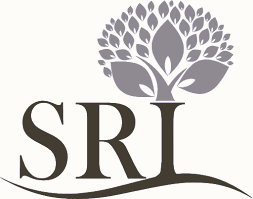Five Pillars of Family Literacy
Principles that flow from an understanding of the central role that family plays in society.The Five Pillars of Family Literacy
We believe that these foundations provide the best tools to understand the complex roles that the family plays in human experience, and understanding them will help diminish the negative consequences of widespread family illiteracy:
1. Family influences are embedded in all dimensions of our culture and world.
Family and family influences are interwoven into all dimensions of human experience, as opposed to the assumption that the family functions in isolated, private contexts. These influences can almost always be found when one asks “the family question” of any given social or historical experience.
2. Strong families and stable family life are essential to individual and social well-being.
Sustainable, flourishing societies depend upon strong, stable families. Across the globe, children are most likely to thrive socially, economically, emotionally, and educationally when they enjoy the shelter and stability of an intact family with a married mother and father. This formula provides a ‘protective shield’ over children, serving as a buffer against countless negative outcomes. Key to this principle of family literacy is understanding that as imperfect as they may be, strong, stable marriages and families play a vital role in determining the health and welfare of children, in providing tremendous potential for happiness, meaning, and belonging, and even in shaping the political, economic, and social destinies of nations.
3. Everyone is shaped by—and inextricably linked to—their family.
Family relationships connect and bind generations together and provide meaning and belonging in life. They are also the primary relationships and first bonds that form a powerful connection between generations through the combined lineage of a father and a mother.
Indeed, among the many relationships we have in the human experience, the most important and significant are our family relationships. It is within the family that individual identity emerges and develops, and where intergenerational spiritual, cultural, and social bonds are created and shared. This becomes even more evident when married couples become parents, because this forms “a linear bridge” between family generations. In this sense, each family creates its own community with its own unique set of personalities, values, practices, stories, and family identity which, in turn, influence individual identity.
Understanding one’s family heritage gives meaning, shapes identity, and connects individuals between generations. Research shows that when people anchor themselves in family history, stories, traditions, and experiences, they develop a sense of belonging which not only centers an individual but provides them with understanding and the potential to meet life’s challenges with resilience throughout their entire life. This is particularly significant for children and youth because knowing about and keeping alive the stories of their family’s past help them better understand themselves and strengthens their emotional well-being.
4. Families are a force multiplier with unique capacity, resources, strength, and resilience.
Remarkable strength and fortitude can be found within a family. Despite the world’s many differing and varying cultures, families bear striking similarities in the ways they turn to one another for strength. Many studies have found that despite enduring adversity, hardship, and even trauma, families have the ability to rally together and draw upon each other for strength, and often emerge with increased love, purpose, and resilience needed to face the future.
5. The religions of the world share many common understandings about the importance of marriage and the centrality of the family in society.
Despite differing doctrinal beliefs, we can agree in fundamental ways about the nature and the importance of the family. There is a striking consistency across disparate faiths in the perspective that the human family derives from deity, that marriage and family life is divinely appointed, that parents and children have deep and lasting commitments to each other, that sexuality is a gift to be exercised within divinely established limits, and that the family is the central institution of society and the most important source of mortal joy and fulfillment. These shared convictions, properly understood, help bring all peoples of the earth together.
Family influences: found in all dimensions of culture
Strong families: essential to individual and social well-being
Family history: everyone is shaped by & linked to their family
Families are a force multiplier: families have unique resources, strength & resilience
Word religions: shared understanding
about the importance of the family
